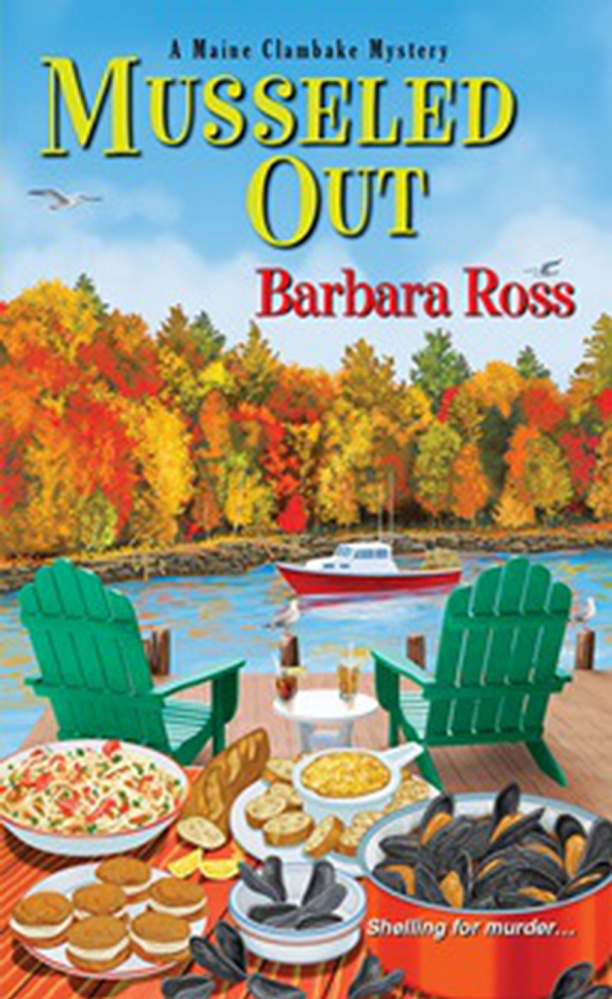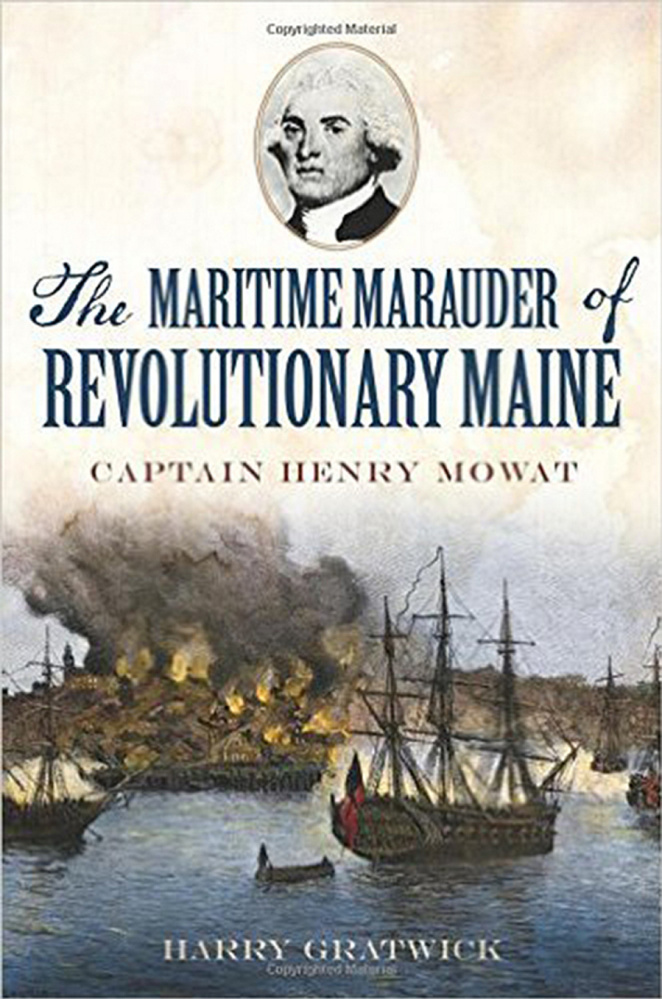MUSSELED OUT
By Barbara Ross
Kensington Books, 2015
313 pages, $7.99
Fans of “cozy” mysteries probably already have heard of Boothbay Harbor’s Barbara Ross and her fellow mystery writers at their website – www.wickedcozyauthors.com. But if not, it’s worth checking out.
Cozy mysteries typically avoid gratuitous violence and bloodshed, but make no mistake – there are plenty of dead bodies, usually killed offstage without all that troublesome gore, relying instead on cerebral action, not fistfights, shoot-outs or car chases.
Cozies also often have a catchy theme for their accidental detectives such as caterer, blueberry farmer or innkeeper. In Ross’s “Maine Clambake Mystery” series, her heroine runs a family clambake business in Busman’s Harbor, Maine. This is her third clambake mystery.
“Musseled Out” finds Julia Snowden, a former hotshot Wall Street venture capitalist, back home in Maine saving the family business. She is a savvy businesswoman with a pesky talent for sticking her nose into police investigations. David Thwing is the “Mussel King,” a Portland restaurant mogul who intends to horn in on Julia’s slim business margin. When he is found dead under an abandoned lobster boat, folks are neither surprised nor unhappy. Good riddance, some say.
Thwing was murdered, the boat owner is missing and the cops are looking closely at Julia’s brother-in-law, Sonny, as their main suspect. He has a solid motive, has no alibi and is lying about everything. Even Julia’s hunky boyfriend, Chris, is hiding uncomfortable secrets from her. His secrets and Sonny’s lies could be connected.
Add in a lobster war, an unusual lobster poaching arrangement, a couple of suspiciously behaving spinster sisters, a famous chef who is not who she seems, a poisoned pill and the sudden arrival of DEA and Customs agents, and Julia realizes this may be more than just a simple murder investigation.
This is a well-crafted, fun mystery that’s perfect for autumn reading.
THE MARITIME MARAUDER OF REVOLUTIONARY MAINE — CAPTAIN HENRY MOWAT
By Harry Gratwick
The History Press, 2015
157 pages, $19.99
Once again, The History Press and Vinalhaven Island author Harry Gratwick have collaborated to produce a rousing tale of Maine history.
The publisher and Gratwick already have written books about Maine forts, shipwrecks, Penobscot Bay and Mainers in the Civil War. Here they present the well-written and controversial story of Capt. Henry Mowat, Royal Navy (1734-1798). A British officer, Mowat was the scourge of Maine’s colonial smugglers who was vilified for bombarding and burning the town of Falmouth (Portland) in October 1775 during the early days of the American Revolution.
Gratwick is a skilled and entertaining storyteller, offering an intriguing and accurate portrayal of “probably the most conscientious, knowledgeable and competent officer in the North American Squadron.” Still, Mowat has been condemned roundly for more than two centuries for his attack on Falmouth, despite being ordered to impose such destruction as punishment for rebellious acts against the Crown.
Gratwick vividly describes the provocations that led up to Mowat’s punitive voyage, as well as his actions before, during and after the destruction of the Casco Bay seaport. Readers can decide if Mowat was a hero or a war criminal.
Best, however, is Gratwick’s colorful biography of Mowat, including the 12 years he commanded the sloop-of-war HMS Canceaux. His coastal survey of New England, produced in the “Atlantic Neptune,” a four-volume atlas of sea charts and coastal maps. The complete set of his logs is held in the library of the Maine Historical Society in Portland.
Mowat later commanded a small British naval squadron in the successful defense of Castine against the Americans’ disastrous Penobscot Expedition in 1779. Mowat may have been a villain for burning Falmouth, but as Gratwick clearly reveals, he was a brave, dedicated and thoroughly professional naval officer acting under orders during a violent period of American history.
Bill Bushnell lives and writes in Harpswell.
Send questions/comments to the editors.




Comments are no longer available on this story